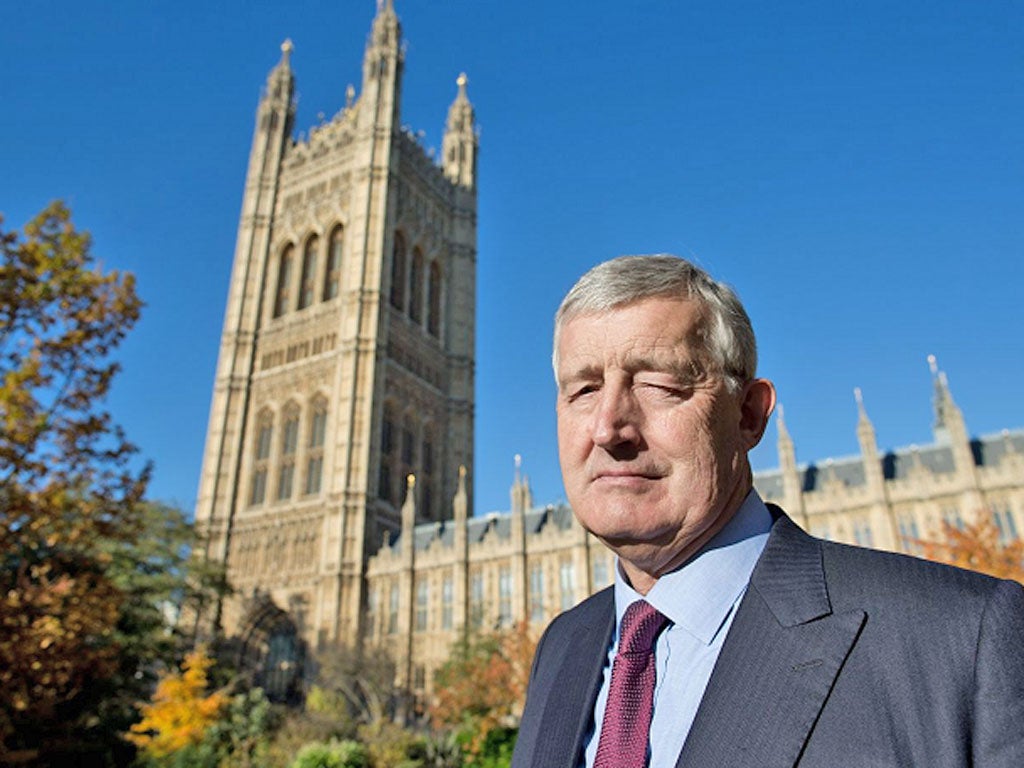Big money is poisoning British democracy, warns anti-sleaze watchdog
Chairman of the Committee on Standards in Public Life says public faith is collapsing

British politics will remain tainted by corruption because the three main parties are refusing to reform the way they are funded, the head of Westminster's anti-sleaze watchdog has warned.
"The system virtually requires [party officials] responsible for funding to offer access to all kinds of things which, even if not corrupt in practice, have the appearance of corruption," Sir Christopher Kelly told The Independent. "It adds to the tarnished nature of the political brand."
He issued a final appeal to David Cameron, Ed Miliband and Nick Clegg to agree a £10,000 cap on individual donations to their parties to ensure donors cannot buy access to or influence politicians. He warned that another funding scandal is inevitable if no ceiling is imposed. He also called for an inquiry by his watchdog into the work of lobbying companies and into the private firms that run public services.
The chairman of the Committee on Standards in Public Life criticised the three main parties for not acting on its recommendations to clean up party funding. It proposed they be recompensed for a donations cap with £23m a year of taxpayers' money.
Cross-party talks on the report are deadlocked. Although Mr Clegg tried to broker a deal, the Conservatives want a £50,000 cap and Labour opposes the committee's call for trade union members to opt in to paying the political levy to Labour, rather than opting out as at present.
Sir Christopher predicted a repeat of the "cash for access" affair which forced the resignation of Peter Cruddas, the Conservative Party co-treasurer, after he was filmed offering meetings with David Cameron in return for donations of up to £250,000.
"Every time there is a story about confidence and trust, the reputation of political parties goes down another notch," he said. "It affects everyone. It damages the brand of all of them."
Sir Christopher warned: "The three main political parties committed themselves to doing something about it in their manifestos, and the Coalition Agreement did too. And yet nothing is happening. But if they are going to reclaim any public trust, then surely they have got to be proactive in dealing with difficult issues like this."
With the parties already looking towards the 2015 general election, he said: "We are running out of time. This will require legislation. If they really want to do it, they could still do it. If it were delayed a few years, it would be a shame, but still a prize to get a sensible, sustainable system."
Sir Christopher feared that, amid the next scandal, a "half-cocked" reform would be rushed in, possibly the £50,000 cap favoured by the Tories, which might then be overturned by a future Labour-led government. He warned that such "tit-for-tat" politics would bring the parties into further disrepute. Disillusionment with the mainstream parties was illustrated in last Thursday's elections for Police and Crime Commissioners, which saw 12 independents elected in 41 areas on a turnout of less than 15 per cent.
Calling on the three parties to put the national interest before their narrow self-interest, Sir Christopher said: "For the Labour Party, it involves addressing very difficult issues about its historical dependence on the trade unions. For the Conservative Party, it requires giving up the advantage it possesses because it has a greater number of wealthier donors."
Labour fears that there could be a secret deal in which the Tories support state funding for parties and the Liberal Democrats approve parliamentary boundaries which could hand the Tories an extra 20 seats at the next election. But Liberal Democrat sources dismissed such speculation, saying Mr Clegg would not change his decision to veto the new boundaries.
Join our commenting forum
Join thought-provoking conversations, follow other Independent readers and see their replies
Comments